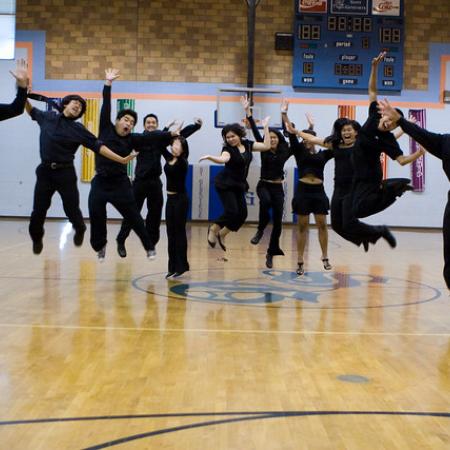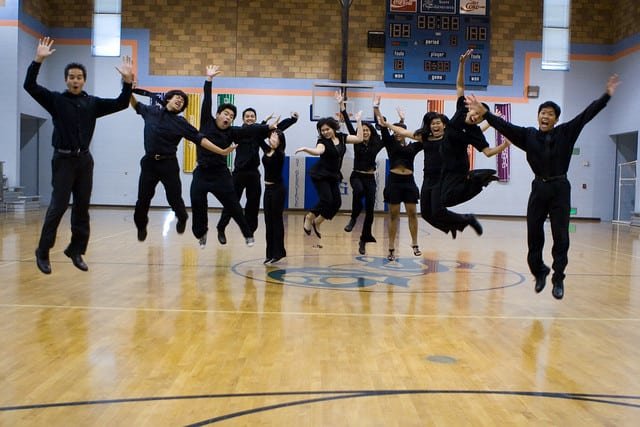Yes, singing can be considered a sport. It requires physical stamina, practice, and competition.
Singers often train like athletes. They work on breath control, vocal strength, and endurance. Singing involves more than just hitting the right notes. Vocalists need to maintain their voice, much like athletes care for their bodies. This means exercises, warm-ups, and proper technique.
Singers also compete in contests, showcasing their skills. Just like sports, there are rules and judges. Singing also requires teamwork. Choirs and bands work together, much like team sports. This teamwork builds discipline and cooperation. So, the next time you see a singer, remember they train hard. They push their limits, just like any athlete.
Introduction To Vocal Performance
Singing has always been a part of human culture. People sing to express emotions, celebrate events, and tell stories. But have you ever thought about singing as a sport? Welcome to the Introduction to Vocal Performance. This is where the journey of understanding vocal performance begins.
Vocal Performance Defined
Vocal performance is the art of using the voice to create music. This involves skill, practice, and discipline. Just like athletes train their bodies, singers train their voices. They work on breathing techniques, pitch, and tone. Here is a simple breakdown of what vocal performance involves:
- Breathing Techniques: Proper breath control is vital.
- Pitch: Hitting the right notes consistently.
- Tone: The quality and color of the voice.
Singers often undergo rigorous training. They practice scales, vocal exercises, and learn various music styles. This training helps in building their vocal strength and stamina.
Cultural Importance Of Singing
Singing is not just about entertainment. It has deep cultural significance. Different cultures have unique singing styles. These styles often reflect their history and traditions. Here are some ways singing plays a role in culture:
- Storytelling: Many cultures use songs to tell stories from their past.
- Rituals and Ceremonies: Singing is a part of many important ceremonies.
- Community Building: Group singing creates a sense of unity and belonging.
In some cultures, singing is a way to pass down knowledge. In others, it is a form of protest or social commentary. No matter the reason, singing connects people. It is a universal language that transcends borders.

Credit: singsmart.com
Physical Demands Of Singing
Singing is more than just using your vocal cords. It requires physical strength and stamina. The physical demands of singing can be compared to those of an athlete. Singers need strong breath control, muscle engagement, and endurance.
Breath Control Techniques
Breath control is essential for singing. Singers use various techniques to manage their breath. One popular method is diaphragmatic breathing. This technique involves using the diaphragm to control airflow. It helps singers maintain a steady stream of breath.
Another technique is breath support. Singers learn to use their abdominal muscles to control their breath. This helps them sustain long notes and sing with power. Proper breath control can prevent vocal strain and fatigue.
Muscle Engagement
Singing engages many muscles in the body. The diaphragm, abdominal muscles, and intercostal muscles all play a role. Strong muscle engagement helps produce a clear and strong voice.
The larynx, or voice box, also involves several muscles. Singers need to keep these muscles relaxed. Tension can affect the quality of the voice. Regular vocal exercises can help strengthen these muscles. This can improve a singer’s range and tone.
Below is a table of muscles engaged during singing:
| Muscle Group | Function |
|---|---|
| Diaphragm | Controls breath |
| Abdominal Muscles | Supports breath control |
| Intercostal Muscles | Expands and contracts the ribcage |
| Laryngeal Muscles | Controls the vocal cords |
Understanding these physical demands can help singers improve their performance. It highlights the importance of physical fitness in singing. Singers, like athletes, need to train and condition their bodies.
Training And Practice
Is singing a sport? Yes, it can be. Just like athletes, singers need training and practice. Let’s dive into the essential aspects of training and practice for singers.
Vocal Warm-ups
Vocal warm-ups are crucial for singers. Warming up prepares the vocal cords. It reduces the risk of injury. Here are some common vocal warm-ups:
- Humming: Start with a gentle hum. This helps in relaxing the vocal cords.
- Lip Trills: Blow air through closed lips. This improves breath control.
- Scales: Sing scales up and down. This increases vocal range.
Warm-ups should be done before every practice session. It ensures the voice is ready for more strenuous activity.
Daily Practice Routines
Daily practice is essential for improving singing skills. Consistency is key. Here is a simple daily practice routine:
| Activity | Time |
|---|---|
| Vocal Warm-Ups | 10-15 minutes |
| Breath Control Exercises | 10 minutes |
| Song Practice | 20-30 minutes |
| Cool Down | 5-10 minutes |
Each part of the routine serves a purpose. Warm-ups and cool-downs protect the vocal cords. Breath control exercises improve stamina. Song practice hones technique and performance.
Consistency in practice leads to steady improvement. Even 30 minutes a day can make a difference. Make daily practice a habit.

Credit: demos.be
Mental Discipline In Singing
Singing requires more than just a good voice. It demands mental discipline. Singers must focus and manage anxiety to perform well. This mental training is as rigorous as any sport.
Focus And Concentration
Sing with focus to hit the right notes. Concentration is key. Singers must remember lyrics and melodies. This requires mental stamina.
Practicing regularly helps build this focus. Like athletes train their muscles, singers train their minds. This mental exercise improves performance.
Overcoming Performance Anxiety
Stage fright is common among singers. Mental discipline helps manage this fear. Deep breathing and visualization techniques are useful.
Many singers use mental exercises to stay calm. Positive thinking and preparation boost confidence. These techniques help singers perform their best.
Comparing Singing To Traditional Sports
Comparing singing to traditional sports may seem unusual at first. Yet, both share common traits that highlight the physical and mental demands involved. Singers, like athletes, need to train hard to improve their performance. Let’s explore how singing compares to traditional sports through the lenses of endurance and stamina, and injury prevention.
Endurance And Stamina
Both singers and athletes must build their endurance and stamina for top performance. Singers practice breath control and lung capacity. This is similar to how runners train their cardiovascular systems. Singing for long periods requires strong lung power and consistent breath support. Just like a marathon runner, a singer needs to maintain their energy and strength throughout their performance.
Training for singing involves regular practice and vocal exercises. These help in building the necessary muscles and control. Without this training, a singer may experience fatigue and a drop in vocal quality. Athletes, too, rely on consistent training to maintain their stamina and endurance. The more they practice, the better they perform.
Injury Prevention
Preventing injuries is crucial in both singing and traditional sports. Singers are at risk of vocal strain and damage if they do not use proper techniques. Vocal warm-ups and cool-downs are essential. These practices are similar to how athletes stretch before and after workouts. Proper technique and regular practice help in minimizing the risk of injuries.
Furthermore, hydration and rest play significant roles in injury prevention. Singers need to keep their vocal cords hydrated to avoid strain. Athletes also need to stay hydrated to perform well and avoid muscle cramps. Rest is vital for both singers and athletes to recover and maintain their health.
| Aspect | Singing | Traditional Sports |
|---|---|---|
| Endurance | Breath control, vocal strength | Cardiovascular fitness, muscle strength |
| Injury Prevention | Vocal warm-ups, hydration | Stretching, hydration |
Both singing and traditional sports require dedication, practice, and proper techniques. By understanding these similarities, one can appreciate the physical demands of singing.

Credit: singsmart.com
Professional Singing Competitions
Professional singing competitions have gained immense popularity worldwide. These contests showcase exceptional vocal talent. They require dedication, practice, and strategy. Singing at a professional level can be as demanding as any sport. It involves rigorous training, mental preparation, and tactical execution.
Types Of Competitions
Professional singing competitions vary in format and style. Some focus on solo performances. Others emphasize group harmonies. There are also genre-specific contests. For example, pop, classical, jazz, and opera. Each type of competition has its own set of rules. They also have unique judging criteria.
Preparation And Strategy
Preparing for a singing competition is crucial. Singers must select the right songs. They practice daily to perfect their technique. Vocal health is also vital. Warm-up exercises and hydration are key. Strategy plays a role too. Singers must understand their strengths and weaknesses. They should choose songs that highlight their best qualities. Stage presence and audience engagement are important. Singers often work with coaches to refine their performances.
Health Benefits Of Singing
Singing offers numerous health benefits that extend beyond mere enjoyment. Engaging in this activity can improve both physical and mental well-being.
Cardiovascular Health
Singing can enhance your cardiovascular health. It involves deep breathing and controlled use of muscles. This improves oxygen flow in the body. Regular singing can strengthen your lungs. It can also boost your heart health. The rhythmic patterns in songs help regulate heartbeat. This can lead to better overall heart function.
Mental Well-being
Singing positively impacts mental well-being. It releases endorphins, the feel-good hormones. This can elevate your mood and reduce stress. Singing in groups provides a sense of belonging. It promotes social interaction and reduces feelings of loneliness. It can also improve mental clarity and focus. Singing requires concentration, which sharpens the mind.
Public Perception Of Singing As A Sport
Singing requires physical strength, control, and stamina. Many wonder if singing can be considered a sport. The public perception of singing as a sport varies widely. Some see it as a mere hobby or art form. Others recognize its physical demands and consider it a sport. Understanding this perception involves looking at how media represents singing and what the general public thinks.
Media Representation
Media plays a significant role in shaping opinions. Television shows like “The Voice” and “American Idol” have popularized singing. These shows focus on talent, training, and competition. They highlight the hard work singers put in. This representation can make people see singing as a sport.
Movies and documentaries also impact views. Films such as “Pitch Perfect” showcase the intensity and discipline of singing. They present singers as dedicated athletes. This portrayal helps to blur the lines between sports and performing arts.
Public Opinion
Public opinion is diverse. Some people see singing as an art, not a sport. They believe it lacks physical exertion compared to traditional sports. Others argue that singers train like athletes. They undergo vocal training, breath control exercises, and physical conditioning. These supporters see the effort and discipline involved.
A survey conducted by Music Enthusiasts showed mixed results. 40% of respondents viewed singing as a sport. 60% considered it an art. This division shows how varied opinions can be. The debate continues, with strong arguments on both sides.
| Opinion | Percentage |
|---|---|
| Sport | 40% |
| Art | 60% |
In conclusion, the public perception of singing as a sport remains divided. Media representation and public opinion both play crucial roles in shaping this debate. Whether seen as an art or sport, the dedication and skill involved in singing are undeniable.
Frequently Asked Questions
Is Singing Considered A Sport?
Yes, singing can be considered a sport. It requires physical stamina, breath control, and muscle coordination, similar to athletic activities.
What Makes Singing Similar To Sports?
Singing involves physical exertion, breath control, and muscle coordination. These elements are also essential in sports, making singing quite similar.
Does Singing Require Physical Stamina?
Yes, singing requires physical stamina. Singers need strong lungs and vocal cords to maintain pitch and volume during performances.
Can Singing Improve Physical Health?
Yes, singing can improve physical health. It enhances lung capacity, strengthens core muscles, and promotes better posture and breathing.
Conclusion
Singing involves physical effort and practice, similar to sports. It requires breath control, stamina, and vocal strength. Singers also need discipline and training. The dedication is comparable to athletes. So, is singing a sport? It shares many qualities with sports.
The debate continues, but both singing and sports need passion and hard work. Whether you sing or play sports, enjoy the journey and keep practicing.



